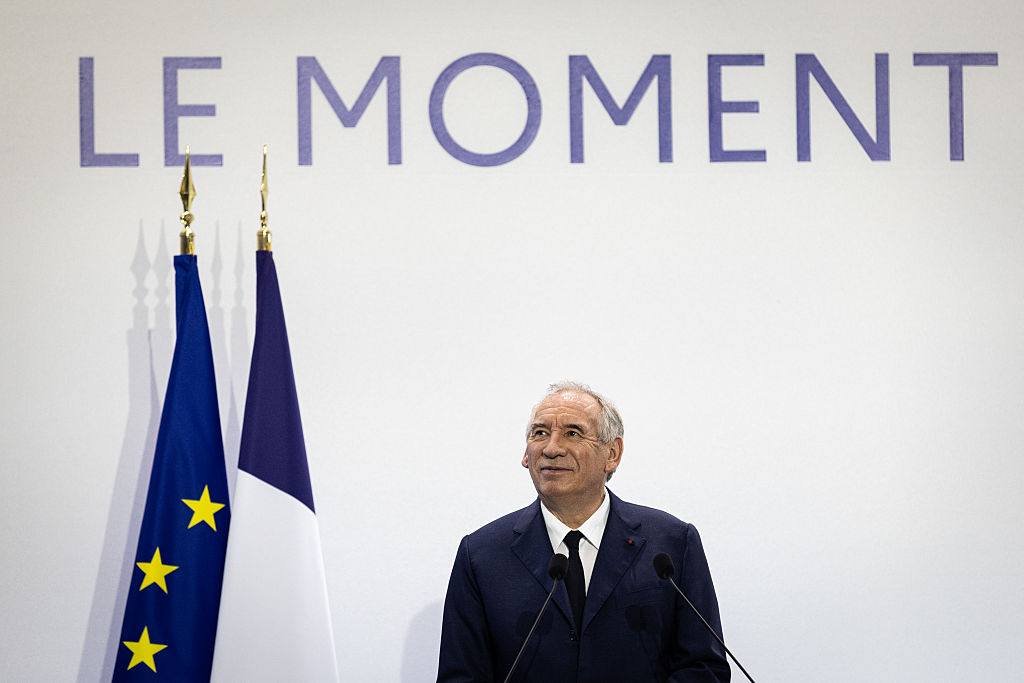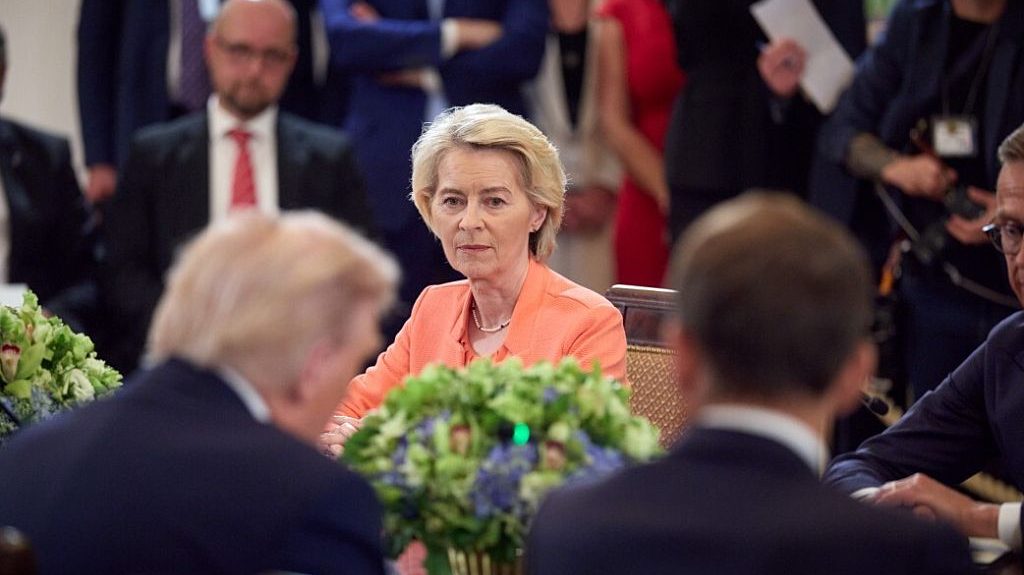Simon Nixon is an independent journalist and publisher of the Wealth of Nations newsletter on Substack. He is a leading commentator on European political economy and geoeconomics and was Chief European Commentator at The Wall Street Journal from 2013 to 2018.
Normally, a summer holiday lifts the spirits. Not this year. European leaders and policymakers return to work this week to confront a much darker outlook.
For the first half of the year it was just about possible to believe that Europe was indeed on the cusp of a “European Moment”, that the extraordinary upheavals triggered by Donald Trump’s return to the White House would jolt the continent into finally addressing long-standing morbidities in the European economy, allowing it to emerge stronger, more resilient and more geopolitically relevant.
The optimism wasn’t irrational. In the Draghi and Letta reports, the European Union had a blueprint for what needed to be done to restore its lost competitiveness and a new European Commission that promised to implement it. In Germany, a new chancellor, Friederich Merz, stunned everyone by scrapping the country’s debt brake and announcing a massive defence and infrastructure spending splurge before he had even taken office. European stock markets surged. A “reset” with the UK promised to heal a costly continental rift.
Now talk of a European Moment has given way to fears of a European “Century of Humiliation”, akin to that which befell China when it was ravaged by colonial powers in the 19th century. The NATO summit in June and the hopelessly one-sided EU-US trade deal that Commission President Ursula von der Leyen agreed with Donald Trump in Scotland in July brutally exposed Europe’s weakness and depth of dependence on America. An EU-China summit had to be transferred to Beijing because President Xi Jinping refused to come to Brussels. Trump’s summit with Russia’s Vladimir Putin in Alaska in August reignited doubts about America’s commitment to Ukraine, heightening concerns about European security.
Meanwhile Europe’s economic challenges have deepened. Growth in the euro area is sluggish to stagnant. Germany’s economy unexpectedly shrank in the second quarter and has now not grown since 2019. The fiscal boost from increased defence spending should lift growth next year but this will be partially offset by the impact of higher US tariffs. China is rapidly evolving from a key export market for European industrial goods into a formidable competitor. Little progress has been made on implementing the Draghi reform agenda to boost productivity and competitiveness. The IMF reckons that internal barriers to trade are the equivalent of a 45% tariff on goods and a 110% tariff on services, yet Commission enforcement action against member states for breaches of single market rules has slowed to a trickle.

A new threat to European financial stability now looms as a result of political turmoil in France. Prime Minister Francois Bayrou looks almost certain to lose a vote of confidence next week on his government’s budget plans. French government borrowing costs are already within touching distance of those of Italy and 0.8 percentage points higher than those of Germany. That reflects doubts about the French political system’s capability to rein in public spending equivalent to an eye-watering 57% of GDP to put public debt on a sustainable footing.
Goldman Sachs reckons France needs to cut its primary budget deficit before interest costs by four percentage points of GDP just to stabilise its debt at current levels of 113% of GDP. Yet the Bayrou government is unable to muster parliamentary support even to cut the deficit from 5.4% of GDP to 4.6% next year, and seems destined to fall. Finance minister Eric Lombard warns that France could be forced to seek a bailout from the International Monetary Fund. That may be hyperbole but at a time of rising bond yields globally, the risk that market fears over soaring public debt might lead to a new euro crisis can’t be ruled out.
In such a febrile environment, it is no wonder that the biggest beneficiaries are right-wing populist parties who now top the polls in Europe’s three biggest countries: Germany, France and the UK. Despite numerous contradictions in their policy platforms, parties such as France’s National Rally, Germany’s AfD, Spain’s Vox, Italy’s League and Hungarian Prime Minister Viktor Orban’s Fidesz proclaim common cause under the unlikely banner of “Make Europe Great Again”. Never mind that their goal of weakening or even destroying the EU is shared by Putin and Trump, who have no wish to make Europe great again. They are easily tapping into a perception that European integration is a source of vulnerability, not strength.
To counter such sentiments, mainstream political leaders need their own project that will signal to their citizens and the world that they are serious about resisting a century of humiliation and ensuring that Europe can be a pole in this emerging multipolar world. There is no secret as to what this project should be. Mario Draghi tiptoed around it in his report last year but made the point forcefully in a speech in Italy last month.
Efforts to deepen the single market in areas such as defence, energy, telecoms and financial services and ratify new trade deals, such as that the Commission has agreed with Mercosur, are necessary and important. But only substantial investment in common defence, infrastructure and technology, necessarily funded by common borrowing, can really move the needle, politically and economically.
Yet such a European Moment seems further off than ever. The draft EU budget published in July envisages that bonds issued under the Next Generation EU post-pandemic recovery programme will be repaid from 2029 as scheduled – even as investors beg for more common European debt as an alternative safe haven asset to US Treasuries. At the same time, member states continue to resist other much-needed forms of financial integration. Despite pleas from the European Central Bank, the eurozone banking union still lacks an adequate backstop and common deposit insurance. Chancellor Merz continues to defy calls for greater cross-border banking consolidation by blocking a proposed merger between Unicredit and Commerzbank.
Besides, France’s inability to get its public finances under control surely makes any new common borrowing initiative politically impossible. What government will want to expend political capital on plans that can be easily characterised as a bailout of France’s bloated welfare system?
In that respect, a weak France can only lead to an even weaker Europe, one in which the feedback loops from national politics to eurozone policymaking lead to a financial system that becomes more rather than less national, and thus more unstable and prone to crisis. Europe may indeed be heading for a moment, but one that future generations will lament.
